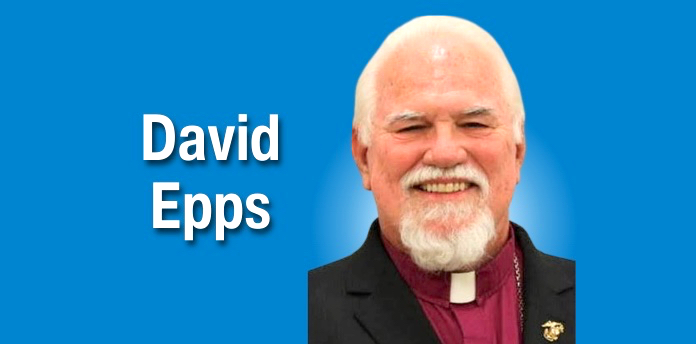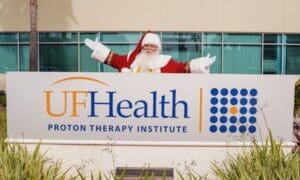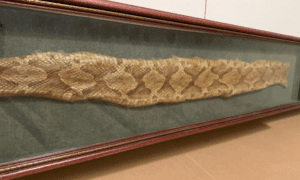Life in Grand Junction, Colorado was good. It was the early 1980s, my two older sons were in a new Christian school that our church, along with two others, founded, the baby boy was healthy, Cindy was working as a registered nurse, and, as 1983 opened, I was responsible for fourteen ministries in my portfolio at the large First Assembly of God.
One of those ministries was an amazing opportunity that involved a collaborative effort with a number of the other associate ministers on staff. It began with two intellectually disabled men in wheelchairs.
The senior pastor, Clarence Cope, brought up a “situation” at our weekly staff meeting. Two mentally challenged adult men were a regular part of the Sunday morning service which consisted of nearly a thousand worshippers. At odd times they would shout out during the service. Rightly or wrongly, their behavior brought some complaints. Pastor Cope was asking for our input and solutions.
No one wanted to deprive these men of the music, teaching, and fellowship of the church. But, what to do?
I had experience with adults with intellectual disabilities (see Part 6 of this series) and other associate ministers had great ideas and resources. Ultimately, various departments, which included youth ministries, children’s ministries, the bus ministry, the education ministry, the outreach ministry, and the Chi Alpha ministry all combined to create a new and unique worship service for mentally challenged adults and youth.
The service would be conducted in the gym with special music, puppets, appropriate teaching, and volunteers who would serve aboard the buses and/or be present in the worship services which would meet on Sunday mornings. The participants were encouraged to sing and participate fully.
We contacted the various local agencies who served these special needs adults, several group homes, and we released a newspaper article about the new ministry.
The result was a dynamic, thoroughly enjoyable worship service that saw about a hundred special needs people attending the weekly services. All from a desire to serve two men in a way that was beneficial to them.
All these endeavors would not have happened without the support and encouragement of Clarence Cope, who frequently took flak for some of these innovative ministries.
Our concert ministry was aimed at unchurched youth and young adults who might enjoy the “righteous rock ‘n roil” bands that were brought in. There was never a monetary charge for these concerts in the sanctuary that saw over five hundred in attendance numerous times.
These bands consisted of talented singers and musicians who formerly were involved in “drug, sex, and rock ‘n roll,” but had found Christ. Each concert, in addition to plenty of music, featured the telling of their stories and ended with an invitation to receive Jesus as their Lord and Savior.
After the concerts, the various detritus of their former lives would be left at the altar: drugs, joints, bottles of alcohol, pipes, and other items that testified to the intention of a changed life.
Some few members of the church were horrified to find these leftovers at the altar the next morning and blamed the pastor for this “desecration.” He took the criticism, continued to support the concerts, and the kids loved him for it.
In the meantime, I was working out with a Professional Karate Association fighter in the church gym Mondays through Fridays from about 6:30 to 7:30 a.m. He was incredibly talented, and I became his sparring partner. I was able to stay in relatively decent shape and, over time, began to hold my own against him but he was always the superior fighter.
In the very early part of 1983, I became restless and started seeking a way to return to the pastorate. I even interviewed with an independent church in the Deep South and was voted in as their pastor by a vote of 100%.
There was only one problem: the church was all white and they intended to keep it that way. The salary package included sending my kids to the all-white academy in town. I decided that I simply couldn’t be part of that racism, nor could I expose my children to it. I declined the invitation and decided that I would just live out my life in Grand Junction.
It was a shock when, during the spring, Pastor Cope announced that he was resigning from the church and was going to be a missionary. Everything was suddenly uncertain. The new pastor, whoever he might be, might not keep any or all of us on his staff.
In the aftermath of that decision, two groups of a few people came to see me separately. One group wanted me to be a candidate for the senior pastor position. The other asked me to form a new church with some of the members of the current church.
I realized that I was (a) not ready for a thousand-member church, and (b) would not participate in anything that would harm the church that had been so good to me and my family. I asked for a brief meeting with the church board and announced that I would be seeking ministry elsewhere. Where, I didn’t know.
In short order, I was contacted by a church in California and asked to consider joining their staff. We agreed that I would fly out for an interview, even though Cindy and I had been praying that something would open up in the South, preferably within a day’s driving distance of our families located in northeast Tennessee. I was about to become unemployed, with three small children, and without a clear direction. I was 32 years old.
Then, unexpectedly, a phone call came at 6:00 a.m. on a weekday morning and Georgia was on my mind.
TO BE CONTINUED…
[David Epps is the Rector of the Cathedral of Christ the King. Worship services are on Sundays at 10:00 a.m. and on livestream at www.ctk.life. He is the bishop of the Diocese of the Mid-South (www.midsouthdiocese.life). He has been a resident of Georgia for 41 years and a weekly opinion columnist for The Citizen for over 27 years. He may be contacted at [email protected]]











Leave a Comment
You must be logged in to post a comment.